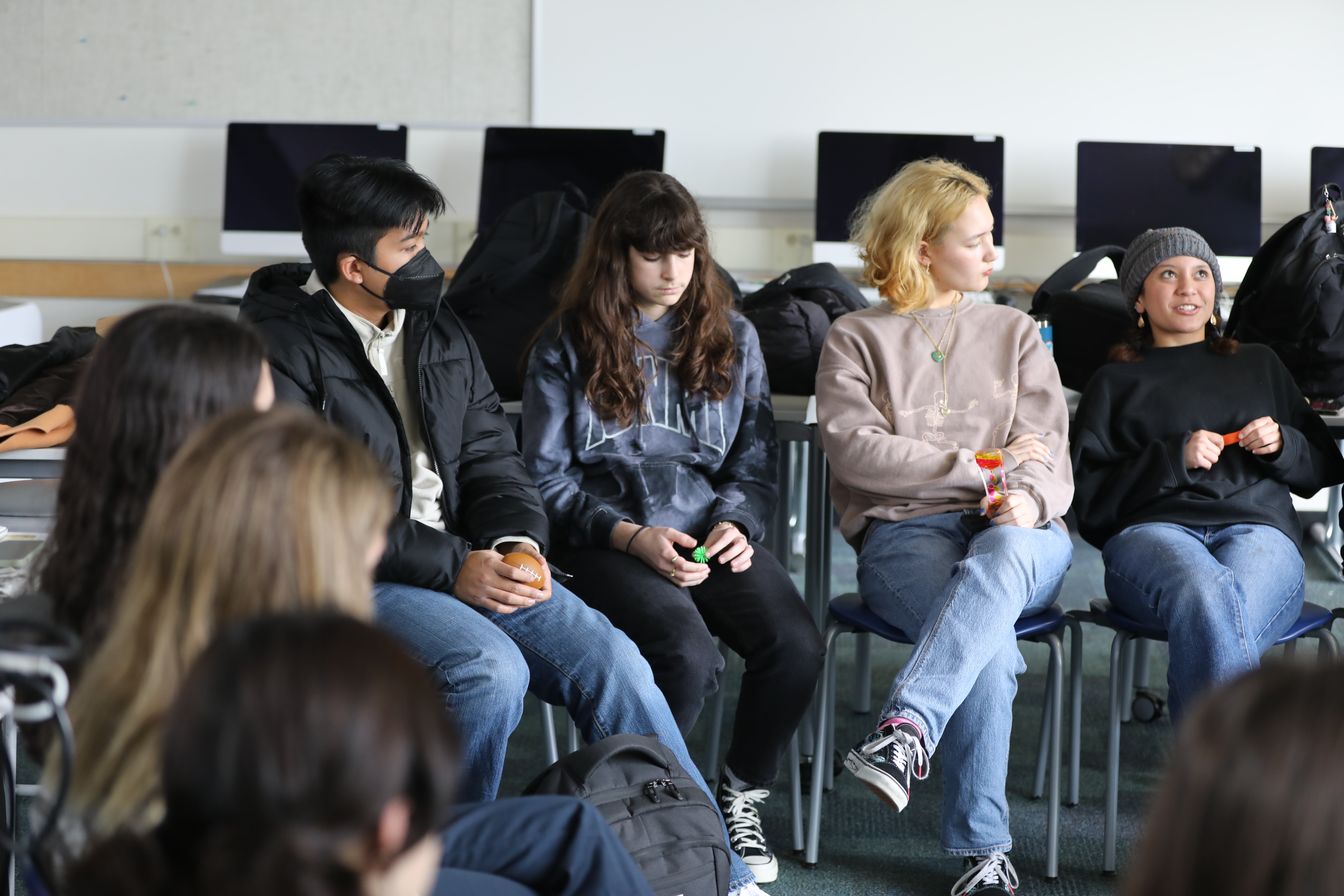How much do grades influence our motivation to learn? Do they enhance or take away from the learning experience? And how can Lick-Wilmerding High School create an environment where grades do not take precedence over the material being taught? These are the questions that some LWHS teachers have turned their attention towards since the return to in-person learning two years ago.
Since the return from COVID-19, some teachers feel that the student body has been set back both academically and socially. This has forced those like 9th and 11th grade English teacher Jennifer Selvin to reflect on the most important pieces of a thriving classroom. “The most important parts of learning are social-emotional. Emotions are completely tied to cognition. We think we have to check our feelings at the [classroom] door. I’m sure I was a teacher who made students feel like that, but actually, the way that we learn is completely tied into emotional cues that we have,” she said.
Last year, Selvin, along with the entirety of the 9th grade English team, implemented a new grading system for students. The system known as ungrading originates from the book Ungrading: Why Rating Students Undermines Learning (and What to Do Instead) (Teaching and Learning in Higher Education) written by Susan Blum.
Individual assignments were not numerically graded but instead given constructive feedback. At the end of the semester, students scheduled conferences with their teachers, during which teacher and student would decide together on a grade that they felt reflected the effort of the student throughout the year.
“There’s a lot of research about how when there are grades, that is the only thing that students focus on,” Selvin said. “And that you can try to de-emphasize them, but ultimately, if there’s a grade and a comment, students are going to look at the grade first and not the comment.”
In a letter given to her students at the beginning of the school year, Selvin wrote about the experiences that led her to this new grading ideology. She cited a valedictorian speech by a former LWHS student. “A student gave a speech detailing how her quest for high grades ruined her mental and physical health. She had come to LWHS loving learning and by the end of her time here, [she] was exhausted, depressed and didn’t know what the point of school was, even though she had the highest GPA of her peers,” Selvin wrote.
Selvin’s de-emphasis of grades led to a much less taxing environment for many of her students, according to Emilia Ozer-Staton ’23, who took Selvin’s class as a junior. “It was less stressful, and also it was just nice to have those conversations with her at the end [of the semester/year] because we had [formed] a pretty close relationship,” Ozer-Staton said. “You could really talk through how you were doing in the class. It also kind of motivated you to really engage in class discussions and do the homework because you want to have a reason to tell her at the end of the semester you deserve an A.”
Selvin also found that students had a deeper connection to the work they were producing, and recounted one of her student’s entries in their learning memoir. “She was talking [about an assignment] to a friend of hers [who] said, ‘Well, why do you care? You’re not getting a grade on it.’ And the student got really mad because she said, ‘myself.’ Yeah, you know, she’s like, ‘I’m writing this for myself,’” said Selvin.
In one students’ end of year journal, they wrote about how they felt they were more connected to the essay they wrote about Song of Solomon, by Toni Morrison, because of the lack of grade on the assignment. “I think I was able to truly embrace the messiness of ideas because my final product did not need to be perfect, I just needed to be proud of it,” they said. “I think this is what propelled me to grow as an English student, because I feel like my ideas were truly and completely reflective of my thinking, instead of cutting myself short so my essay would be easier to write.”
The ungrading approach was so successful that it has now been applied to all 9th grade English classes. Avery Yang ’26 described her experience with the grading system in her first semester at LWHS. “It made me feel much more comfortable in class. I was so scared of the stress of grades coming into high school and this made me feel a sense of relief, like I could take a deep breath,” she said.
Selvin hopes that education systems as a whole will rethink the student-teacher relationship, especially as she has thought more about anti-racist teaching strategies. “In this country, grading and public education is inextricably linked to an industrial model that prioritizes efficiency in sorting people into categories and, of course, to gatekeeping and making sure that the dominant power structure of this country doesn’t change,” she said.
With her new grading strategy, Selvin found that she didn’t have to be a “gatekeeper.” “That is my primary interest,” she said.
The Center for Civic Engagement Senior Associate and Ethnic Studies teacher Yanni Velasquez ’15 shared his insight on how grading affected him when he was an LWHS student. “I felt that working hard did not always mean you got an A,” he said. “Something felt inequitable. What does it mean when we equate the amount of labor and sacrifices we make to not go hang out with friends to a grade? Maybe it’s a bad practice — to not go to an internship or not even apply, or just not think about things that really give us life — in order to get this grade.”
Velasquez discussed the possibility of a shift in the LWHS grading culture. “It doesn’t just fall on the students, it falls on us as administrators and teachers to understand,” he said. Velasquez’ Ethnic Studies class this school year is being graded pass/fail.
Alexa DiSabato ’23 reflected on her experience with LWHS’s grading and how it has affected her school experience. “I was stressed about my grades for the past two years. I feel like it honestly helped my academics, though, because I was just very focused on doing well in school. But I definitely limited myself socially and didn’t hang out with friends as much as I could have because I was doing schoolwork and homework so much,” she said.
As the Spring semester continues, LWHS seniors have finally been able to take a deep breath.
One of the biggest aspects of this newfound relief among seniors is the feeling that grades may not “matter” anymore. While “senioritis” has stereotypically been portrayed as a state that inhibits learning, many LWHS seniors have found that their disinterest in their grades has led to the exact opposite effect.
Antonia Casey ’23 spoke about her experience in her second semester senior seminar: Morrison and Faulkner. “I am always excited to go to Mr. Shannon’s English class,” she said. “Not only is the material super interesting, but I feel comfortable to explore my ideas without worrying about my grade.”
Ungrading, Pass/Fail and seniors’ second semester classes have allowed LWHS students to intellectually grow at school. These classes and student experiences show that the de-emphasis of grades can allow for a healthy and flourishing classroom enviornment.






